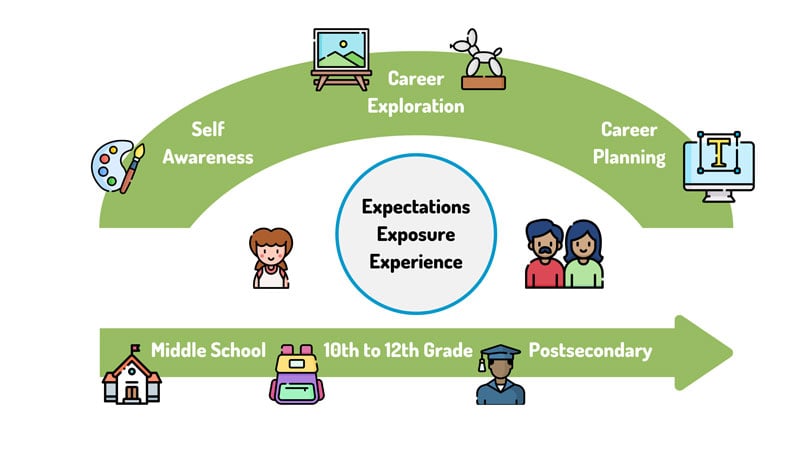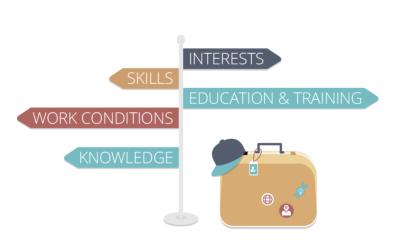A well-defined career path is crucial for several reasons, each contributing to both personal fulfillment and professional success. Here’s why setting and following a career path is so important:

1.Direction and Clarity: Having a clear career path provides a sense of direction. It helps individuals focus their efforts on specific goals and milestones, reducing the likelihood of wandering aimlessly through different jobs. This clarity can be incredibly motivating and can help one prioritize learning and development activities that align directly with their career goals.
2. Goal Achievement: A career path helps break down the journey into manageable steps and stages. It allows individuals to set and achieve short-term objectives while working towards long-term aspirations. This structured approach to career development ensures continuous progress and can lead to higher satisfaction and success rates.
3. Skill Development: By understanding the requirements of your chosen career path, you can identify the skills and competencies you need to develop. This proactive approach to skill acquisition ensures that you remain competitive and relevant in your field, especially as job markets evolve and new technologies emerge.
4. Job Satisfaction and Engagement: People who work in careers that align with their personal interests and professional skills tend to be more engaged and satisfied. A career path that reflects one’s values and strengths can lead to greater job satisfaction, lower stress levels, and a higher quality of life.
5. Professional Growth : A career path provides a roadmap for advancement. It often includes planned upward movement, whether through promotions within a chosen field or strategic moves across different industries. This growth is not just about higher income but also about expanding responsibilities, gaining diverse experiences, and enhancing one’s reputation and influence in the industry.
6. Adaptability: With a career path, individuals can better anticipate changes in their industry and adapt accordingly. It encourages a mindset of lifelong learning and flexibility, which are crucial in today’s fast-paced work environments. Being adaptable helps ensure that you can navigate through economic downturns, industry disruptions, and job transitions more effectively.
7. Personal Fulfillment : Ultimately, a career path that aligns with one’s passions and strengths can lead to personal fulfillment. Achieving milestones and realizing one’s professional potential can be profoundly satisfying, contributing to overall happiness and well-being.
In essence, a career path helps individuals systematically approach their professional life, ensuring that they make informed decisions that lead to personal and professional fulfillment. It acts as a strategic plan that guides individuals through the complexities of the modern workplace, helping them to capitalize on opportunities and overcome challenges effectively.



